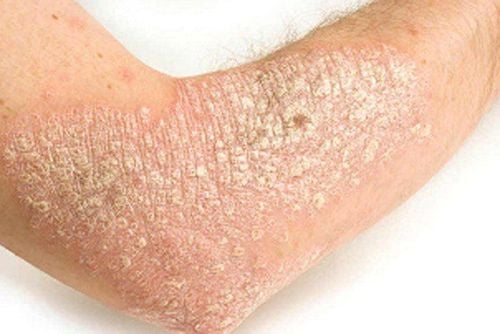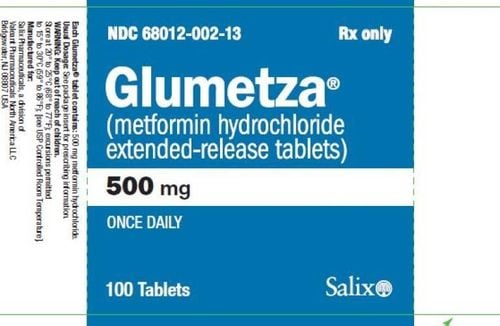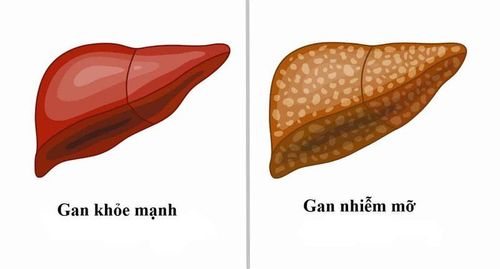This is an automatically translated article.
People with psoriasis may face an increased risk of metabolic syndrome due to higher levels of the hormone leptin. Metabolic syndrome significantly increases the risk of heart attack, stroke, peripheral vascular disease, and type 2 diabetes.
1. Metabolic Syndrome (MetS)
Metabolic syndrome (MetS) is defined as having at least three of the factors that lead to heart disease and diabetes, namely: High blood pressure, too much belly fat, high fasting blood sugar, cholesterol levels good (HDL) and high cholesterol.
Obviously, when the body has any one of these factors, it is not good. When they are combined, they create very serious diseases. These risk factors double your risk of vascular disease, heart disease, which can lead to heart attacks and strokes. They increase the risk of diabetes by five times.

Hội chứng chuyển hóa làm tăng nguy cơ mắc các bệnh tim mạch
2. What causes metabolic syndrome?
According to the American Heart Association and the National Heart, Lung, and Blood Institute, there are five factors that contribute to metabolic syndrome:
Insulin resistance: Insulin is a hormone that helps the body use glucose - a type of sugar simply in the food you eat, to create energy. In people with insulin resistance, insulin doesn't work, so the body continues to make more to deal with elevated glucose levels. This can lead to diabetes. Insulin resistance is strongly associated with having excess weight in the abdomen. Obesity, especially abdominal obesity: Experts say that metabolic syndrome is becoming more common due to rising obesity rates. Unhealthy lifestyle: Eating a diet high in unhealthy foods and not exercising regularly can cause metabolic syndrome Hormone imbalance: For example, polycystic ovary syndrome (PCOS) ) is a condition that affects fertility, which is associated with hormonal imbalances and metabolic syndrome. Smoking However, this syndrome can be completely controlled if the patient makes healthy lifestyle changes. At the same time, experts recommend getting your blood pressure, cholesterol and blood sugar checked regularly.

Người bệnh nên thường xuyên kiểm tra các chỉ số huyết áp và tiểu đường
3. The relationship between psoriasis and metabolic syndrome
Chronic psoriasis is an immune-mediated inflammatory skin disease that is closely associated with clinical features of the metabolic syndrome including: abdominal obesity, hypertension, dyslipidemia, type diabetes 2, insulin resistance and nonalcoholic fatty liver disease.
The prevalence of MetS in psoriasis patients ranges from 20% to 50%. Thus, the risk of MetS in patients with psoriasis is at least twice that of those with uncontrolled psoriasis. MetS is also more common in patients with severe psoriasis than in those with mild skin disease.
The association between psoriasis and MetS has important clinical implications. Conventional treatments should be used with caution in psoriatic patients with MetS, as they may adversely affect coexisting metabolic disorders, particularly in chronic cases.
In general, dermatologists should pay attention to early recognition of coexisting metabolic disorders and make pharmacological and non-pharmacological recommendations (standardized diet and exercise regularly) to the patient.
A new study shows that people with common skin conditions like psoriasis have higher levels of the hormone leptin. Regulation of food intake, body weight, and fat storage is thought to help with immune and inflammatory processes. But elevated levels of the hormone leptin can make them more susceptible to obesity, high blood pressure, diabetes and other heart disease risk factors.

Người mắc bệnh da liễu có nguy cơ cao bị béo phì và các yếu tố nguy cơ khác
Previous studies have linked dermatology with obesity, heart disease, diabetes, and metabolic syndrome. People with obesity, high blood pressure, and metabolic syndrome have increased leptin levels in people with psoriasis. Elevated leptin levels in people with psoriasis may stem not only from fatty tissue but also from inflammation.
Weight loss significantly reduces leptin levels, improves insulin sensitivity, and may reduce the likelihood of developing metabolic syndrome and adverse cardiovascular diseases. Weight loss has the potential to become part of psoriasis treatment in general, especially in obese patients.
Vinmec International General Hospital with a system of modern facilities, medical equipment and a team of experts and doctors with many years of experience in medical examination and treatment, patients can rest assured to visit. examination and treatment at the Hospital.
To register for examination and treatment at Vinmec International General Hospital, please book an appointment on the website for the best service.
References: webmd.com, sciencedirect.com
Please dial HOTLINE for more information or register for an appointment HERE. Download MyVinmec app to make appointments faster and to manage your bookings easily.
MORE
Is Psoriasis Contagious? Psoriasis is difficult to treat definitively Does psoriasis cause itching and how is it treated?













